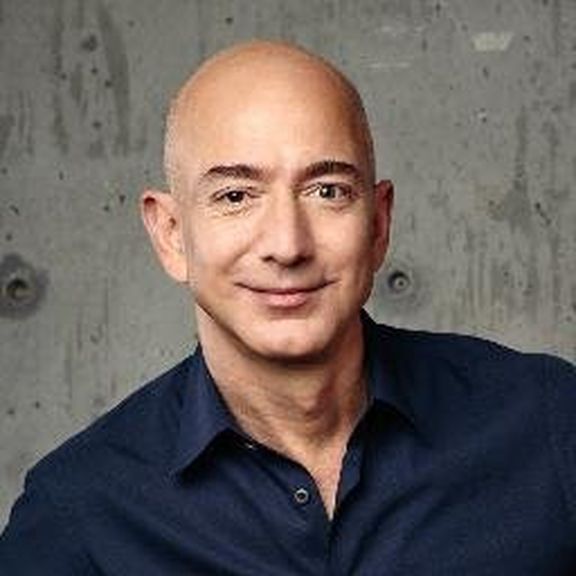

Andy Jassy will succeed Jeff Bezos as Amazon's CEO, the e-commerce and cloud services giant disclosed today. Bezos will transition to the role of Executive Chair in the third quarter of 2021 and Jassy -- currently CEO of Amazon Web Services -- will run the entire company at that time.
The CEO succession comes at a time of enormous financial and technical strength for Amazon. In fact, the biggest challenges awaiting Jassy as CEO have less to do with technology -- and more to do with social equality and antitrust scrutiny, ChannelE2E believes.
Bezos founded Amazon almost 30 years ago -- marching the company on a tireless innovation journey from online book seller to The Everything Store. Amazon -- thanks to Jassy -- expanded beyond e-commerce and spotted the cloud services opportunity before most rivals understood the forthcoming transition to on-demand IT services and subscription software -- now universally known as "the cloud."
Overall, the Amazon journey to date has involved some massive globe-changing hits, a few misses (remember Amazon Fire phone?), and growing government scrutiny.
Rise of AWS and IT as a Service
It seems natural that Amazon's next CEO is the driving force behind the company's most successful business. AWS officially launched in 2006 -- roughly four years before Microsoft Azure debuted in 2010. Within the IT services, software and hardware markets, AWS inspired multiple market transitions, disruptions and evolutions -- such as:
- Rise of Public Cloud MSPs: Leading consulting firms and global systems integrators have transformed into public cloud MSPs focused on AWS, Azure and/or Google Cloud.
- Pressure in the Enterprise: Hardware and software giants such as IBM, Oracle and Hewlett Packard Enterprise have had to pivot multiple times to either build their own clouds (Oracle) or hedge toward a multi-cloud/hybrid cloud strategy (IBM and HPE). Former IBM CEO Sam Palmisano famously downplayed the cloud's potential impact roughly a decade ago, and IBM spent too time acquiring its own stock rather than innovating around subscription services.
- Rethinking of Distribution: Distributors have either competed, cooperated (or both) with the Amazon Marketplace -- especially as shrink-wrapped software and hardware appliances shifted toward virtualized services. The silver lining: Distributors realized they had to roll out cloud marketplaces, much in the way that big box retailers (Target, Home Depot, etc.) evolved to counter Amazon's e-commerce services.
Amazon and AWS: Overall Revenues
Fast forward to present day, and Bezos is stepping down during a dominant period for Amazon. For Amazon's fourth quarter of 2020:
- Net sales increased 44% to $125.6 billion.
- Net income rose to $7.2 billion, up from $3.3 billion in Q3 of 2019.
In a prepared statement about the financial results and CEO transition, Bezos said:
“Amazon is what it is because of invention. We do crazy things together and then make them normal. We pioneered customer reviews, 1-Click, personalized recommendations, Prime’s insanely-fast shipping, Just Walk Out shopping, the Climate Pledge, Kindle, Alexa, marketplace, infrastructure cloud computing, Career Choice, and much more. If you do it right, a few years after a surprising invention, the new thing has become normal. People yawn. That yawn is the greatest compliment an inventor can receive. When you look at our financial results, what you’re actually seeing are the long-run cumulative results of invention. Right now I see Amazon at its most inventive ever, making it an optimal time for this transition.”
Amazon's Critics Raise Worker Safety, Diversity, Inclusion, Antitrust Concerns
Still, Amazon's dominance also faces key question marks -- spanning everything from front-line worker safety during the COVID-19 pandemic to fair wages, diversity and inclusion, and potential antitrust investigations.
Answering its critics on some fronts, Amazon in its February 2, 2021, earnings release said:
- It is working to ensure that its front-line employees receive vaccines as soon as possible.
- More than 700 employees are now tested every hour, and Amazon’s dedicated COVID-19 labs have processed more than one million tests globally.
- The company invested $2.5 billion in additional front-line employee pay in 2020.
- Amazon offers a starting wage of at least $15 an hour.
- All full-time employees also receive healthcare and full benefits from their first day on the job.
On the diversity front, Amazon in 2020 said it was making progress while pointing to 2019 company workforce data, but conceded there was more room for improvement. Also of note: Amazon in August 2020 added the first Black member to its "S-team," a group of executives who advise Bezos. Alicia Boler Davis, Amazon’s VP of global customer fulfillment, joined the S-team — along with John Felton and Dave Treadwell, Business Insider reported at the time.
On the antitrust front, multiple organizations have launched legal cases and/or probes of the company. Those voicing concern or exploring potential legal moves include attorneys from New York and California; the Federal Trade Commission (FCC); Canada's competition regulator; online resellers in India; and European Union regulators, according to ChannelE2E's ongoing coverage of Big Tech antitrust investigations.
On the wages front, Amazon is paying nearly $62 million to settle charges that it took tips from its delivery drivers, the U.S. Federal Trade Commission disclosed February 2, 2021. The settlement surfaced a few hours before Amazon announced the CEO transition.
Big Tech CEO Transitions: Not Easy, But Jassy Appears Prepared
Meanwhile, Amazon without Bezos at the helm seems unimaginable. And in the tech industry, CEO transitions from dominant founders to next-generation leaders often don't work out.
Notable CEO moves that either missed the mark, fell short or reversed course include:
- Microsoft's CEO transition from Bill Gates to Steve Ballmer in 2000;
- Dell's CEO transition from Michael Dell to Kevin Rollins in 2004 before shifting back to the founder's leadership; and
- Salesforce's brief co-CEO model in 2018 before Marc Benioff resumed a solo-CEO role for the SaaS company.
Back at Amazon, Jassy may be the one person best suited for the succession. Indeed, Jassy joined Amazon in 1997 as a marketing manager. He planted the seeds for AWS around 2003, pushed AWS into production by 2006, rose to senior VP and became CEO of AWS in 2016.
Today, AWS is generally Amazon's most profitable business.




